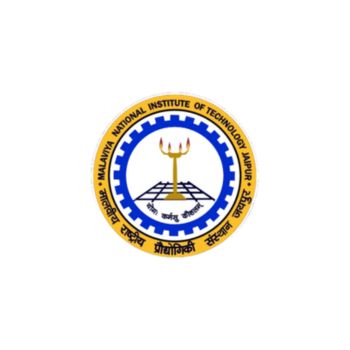Register now for EduThon 2025: The UBA School Innovation Hackathon by MNIT Jaipur. The deadline for registration is October 31!
The UBA EduThon 2025 on School Education, organized by the Subject Expert Group at MNIT Jaipur, is a five-day national online hackathon designed to harness student creativity and produce scalable, cost-effective, and community-driven innovations for rural school education. The hackathon bridges policy insights, particularly the School Model and progressive state education policies—with hands-on student innovation. Selected prototypes will be piloted in UBA villages for real-world validation.
Despite important reforms, rural schools still face significant challenges: insufficient trained teachers, multi-grade classrooms, limited digital access, scarce learning resources and weak community engagement. EduThon 2025 invites students to turn these constraints into opportunities by designing solutions that are locally relevant, low-cost and ready for pilot testing.
Who can participate?
Mentorship: Every participating team will be assigned mentors from the Subject Expert Group or partner institutions to guide prototyping and pilot-ready planning.
| Phase | Date | Activities |
|---|---|---|
| Launch & Outreach | 16 October | Invitation & circulation of the Notice and Guidelines to all RCIs & Participating Institutes |
| Registration | 16–31 October | Online registration of teams through Google Form |
| Orientation Webinar | 28 October | Online orientation introducing themes, guidelines, and Q&A with participants |
| Hackathon Event | 3–7 November | 5-day online hackathon |
| Proposal Submission | 7 November | Upload proposals, demo videos |
| Review & Shortlisting | 10–13 November | Shortlisted teams need to have presentation |
| Virtual Grand Finale | 17 November | Online presentations by shortlisted teams; announcement of winners |
Teams can choose from five structured problem statements or propose their own challenge under the Open Category. Each problem includes context, objectives, suggested directions and prototype expectations.
Context: Many rural classrooms are multi-grade (one teacher, several grades). This leads to varied learning speeds, increased teacher workload and patchy outcomes.
Objective: Design simple, scalable tools and strategies that help teachers manage multi-grade classrooms effectively.
Suggested directions: Smart lesson-planning apps (offline-first), adaptive teaching schedules, peer-learning frameworks with student mentors and incentive systems.
Prototype expectations: Sample lesson plans, teacher guide, demo activities and a scalability plan.
Context: Lecture-driven classrooms and lack of teaching aids hinder experiential learning called for by NEP 2020.
Objective: Create affordable, locally-sourced activity kits aligned with language, math and EVS curricula.
Suggested directions: Low-cost science kits, math manipulatives, story/phonics kits, DIY local-material kits, QR-linked teacher manuals.
Prototype expectations: Physical mock-ups or designs, teacher manual, student worksheets, cost breakdown and scaling model.
Context: Low parental/community participation reduces accountability and learning support.
Objective: Build inclusive, low-cost digital or low-tech systems that strengthen school–community linkages.
Suggested directions: SMS/IVR/WhatsApp communication tools, community meeting frameworks, take-home activity cards for parents and recognition programs for community champions.
Prototype expectations: Demo flows or app mock-ups, parent/teacher guides, inclusivity plan and pilot strategy for 1–2 schools.
Context: Children learn better when materials reflect their language and culture; rural areas lack local-language, culturally relevant resources.
Objective: Produce curriculum-aligned storytelling and micro-lessons in local languages, available offline.
Suggested directions: Audio story libraries, animated e-books, teacher/student co-creation platforms, SD card/USB offline delivery.
Prototype expectations: Sample story/audio/video, storyboard/scripts, teacher facilitation guide and an offline-access roadmap.
Context: Manual registers and limited data make early detection of absence/dropout risks difficult.
Objective: Develop offline-capable attendance and learning trackers that generate alerts and simple reports for teachers and parents.
Suggested directions: Offline-first apps with sync, QR/paper hybrid capture, SMS/voice alerts and teacher dashboards for early-warning detection.
Prototype expectations: Demo tool or hybrid design, parent communication templates, cost analysis and sustainability plan.
This track invites participants to define their own challenges and design innovative solutions using emerging technologies such as:
Possible areas include predictive analytics for dropout prevention, AI-assisted teaching, IoT-based smart classrooms, and accessibility solutions for differently-abled learners.
Projects will be judged across five dimensions:
EduThon 2025 goes beyond idea generation, it focuses on implementation and impact. The best solutions will be:
Through this approach, the hackathon will transform innovative ideas into sustainable models for rural education.
Interested participants can register through this link.
The deadline for registration is October 31, 2025.
For any queries regarding registration or participation contact: Suraj Rulania

